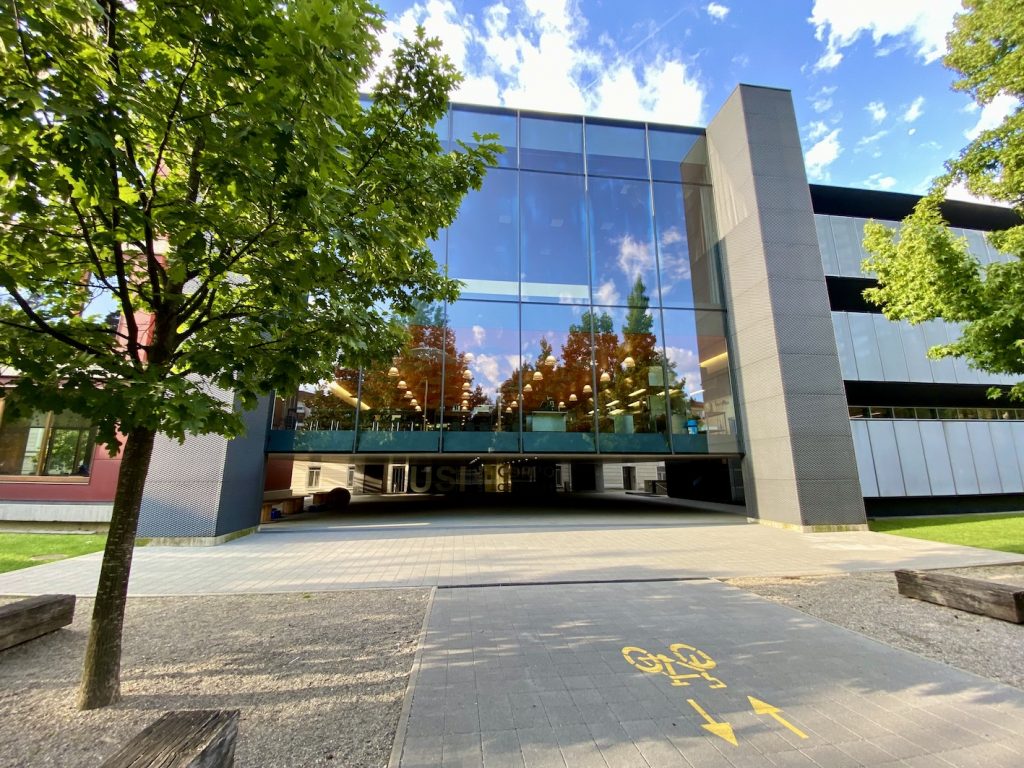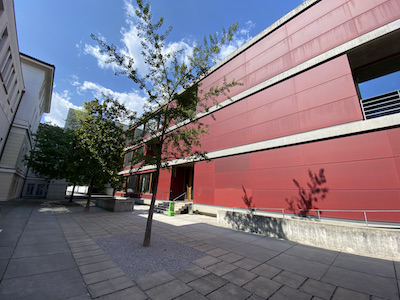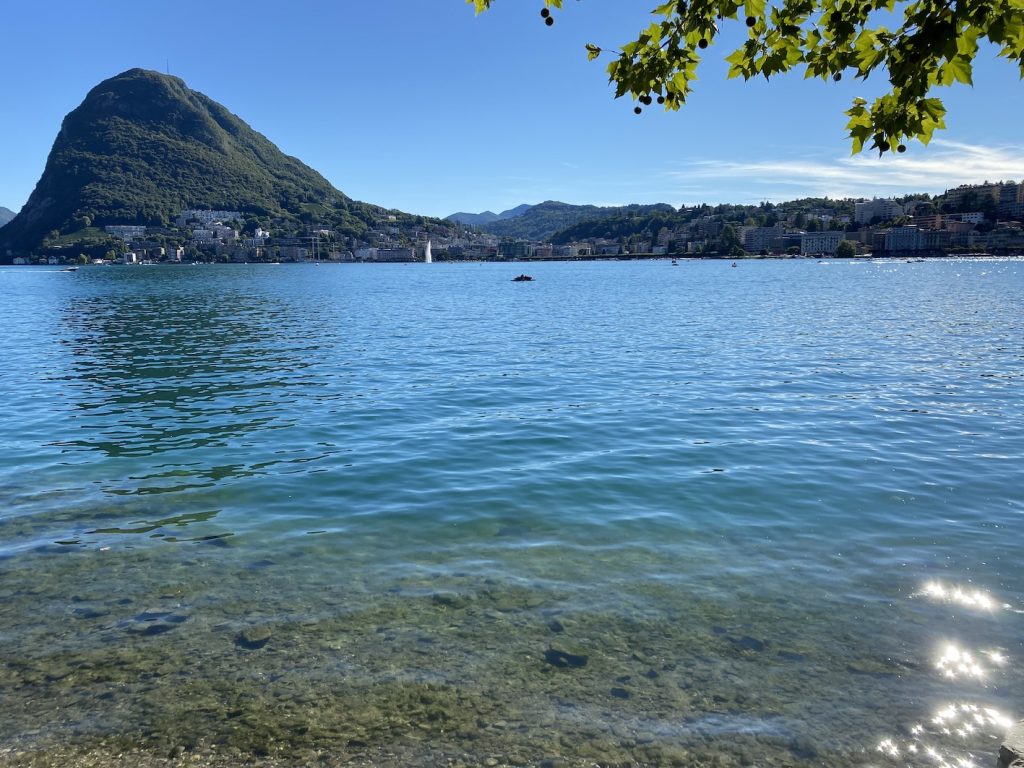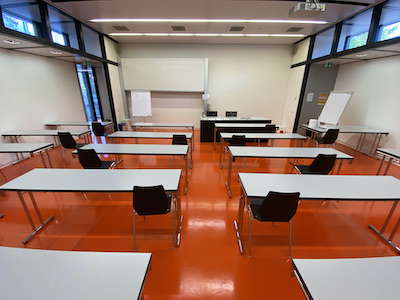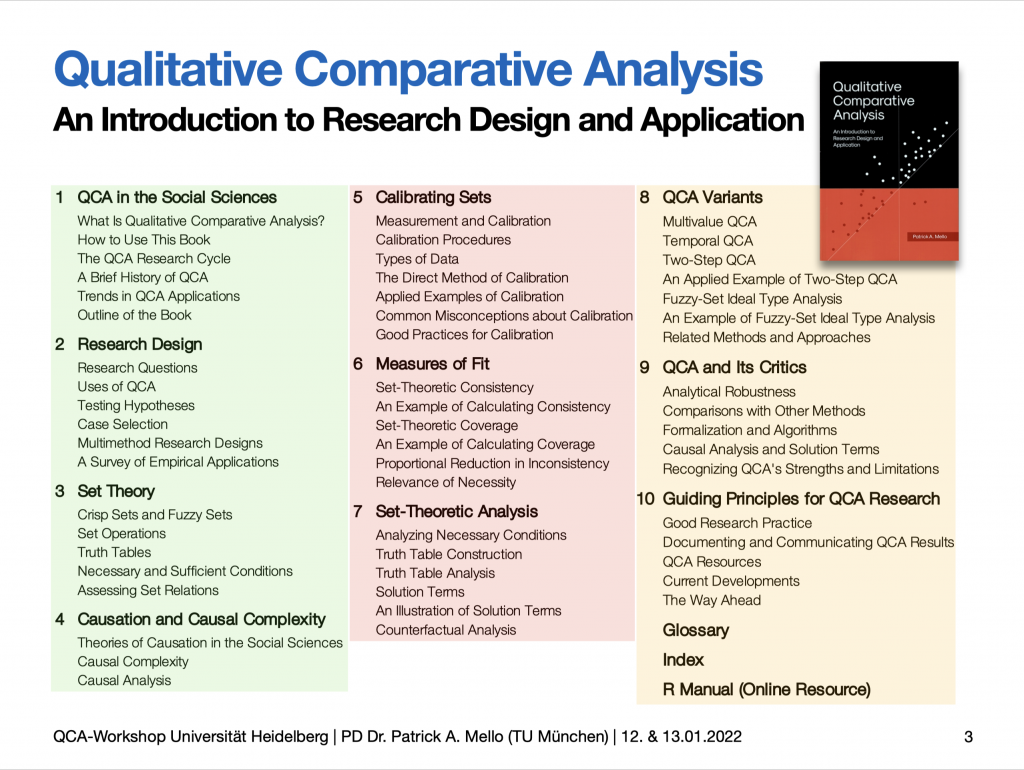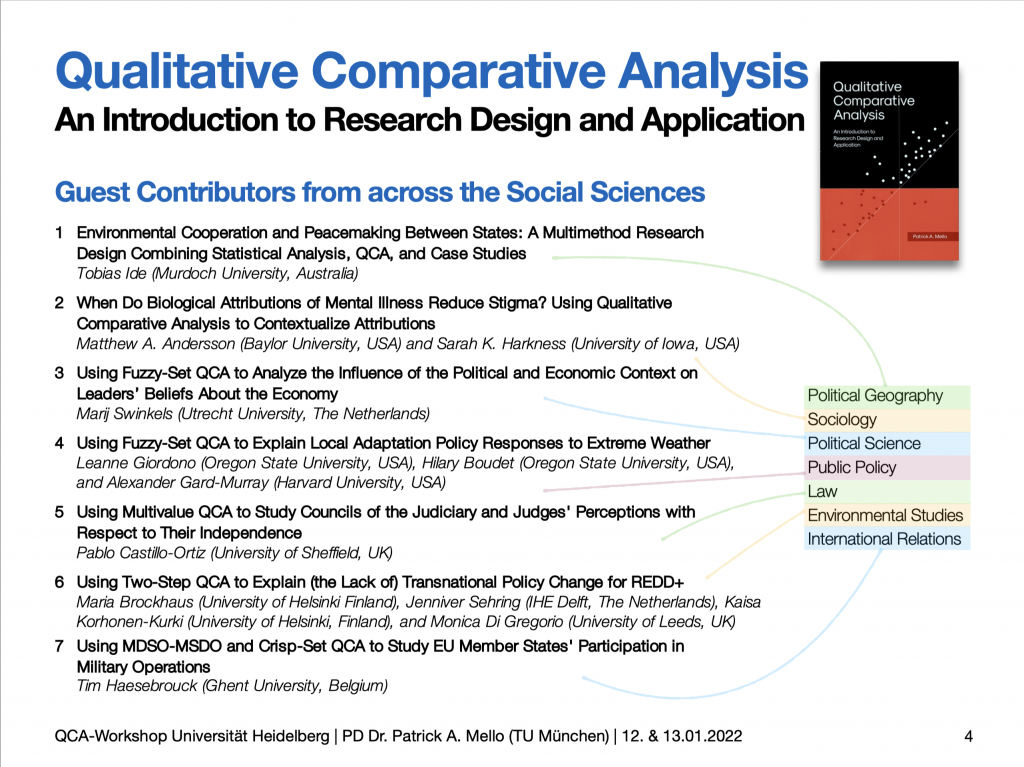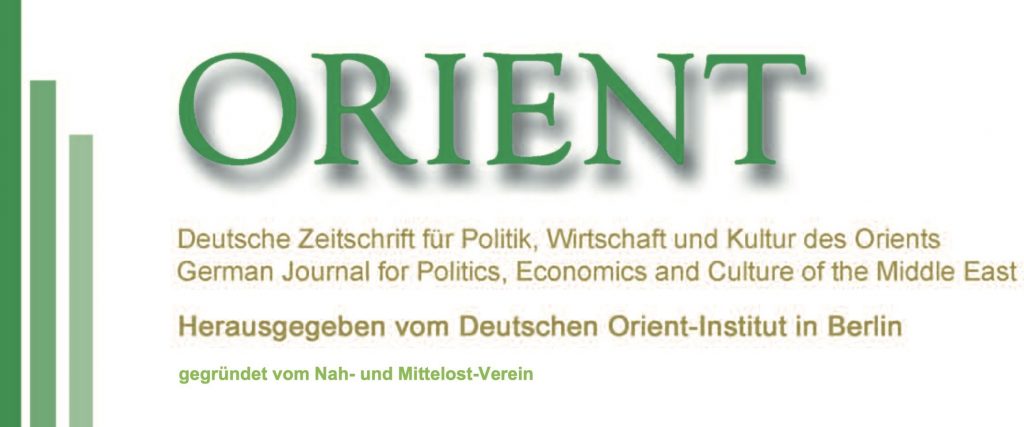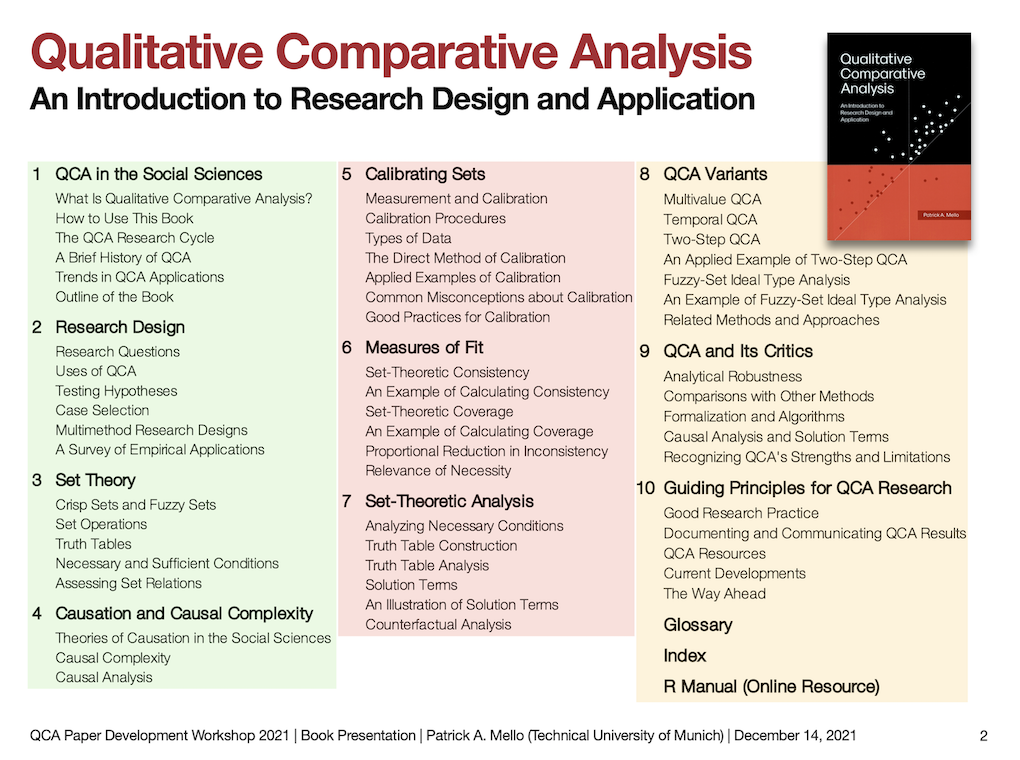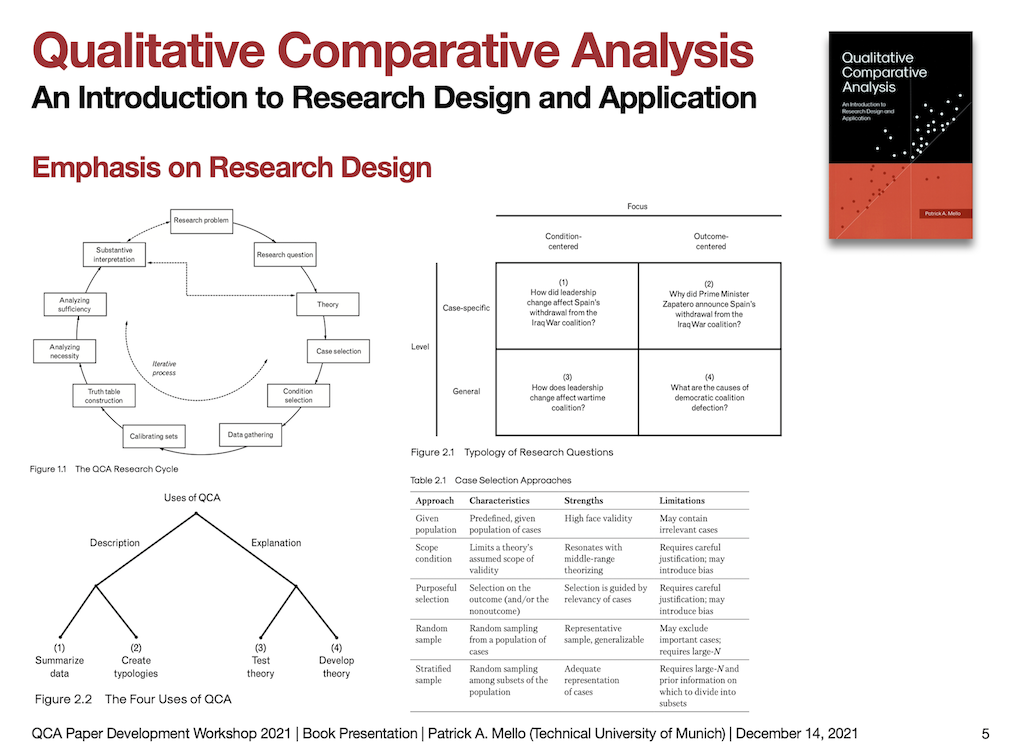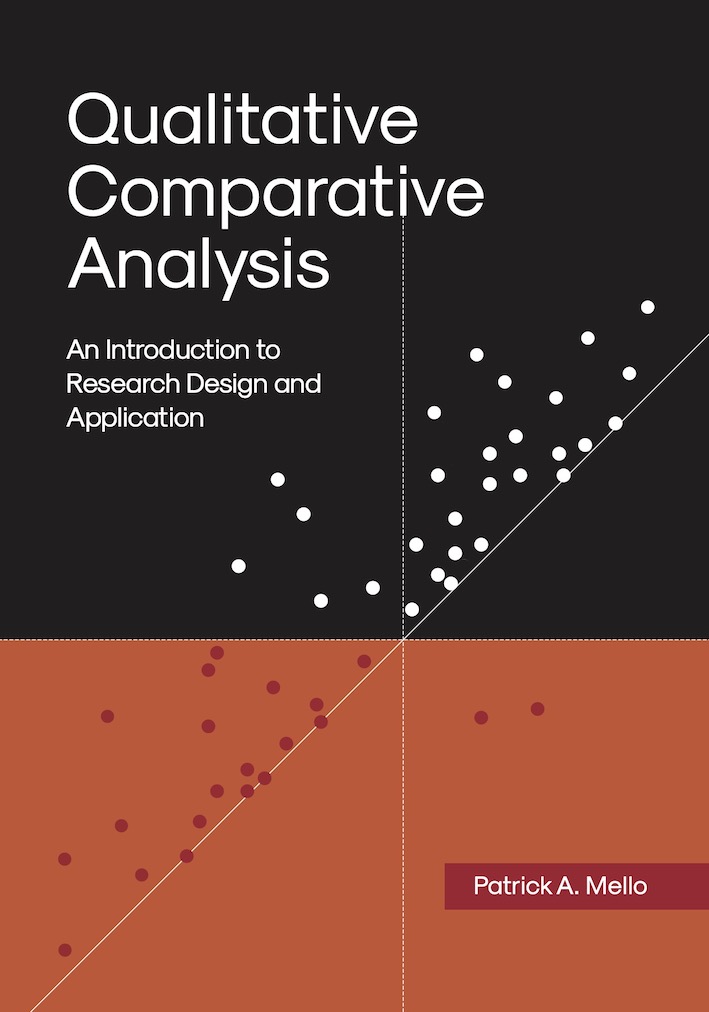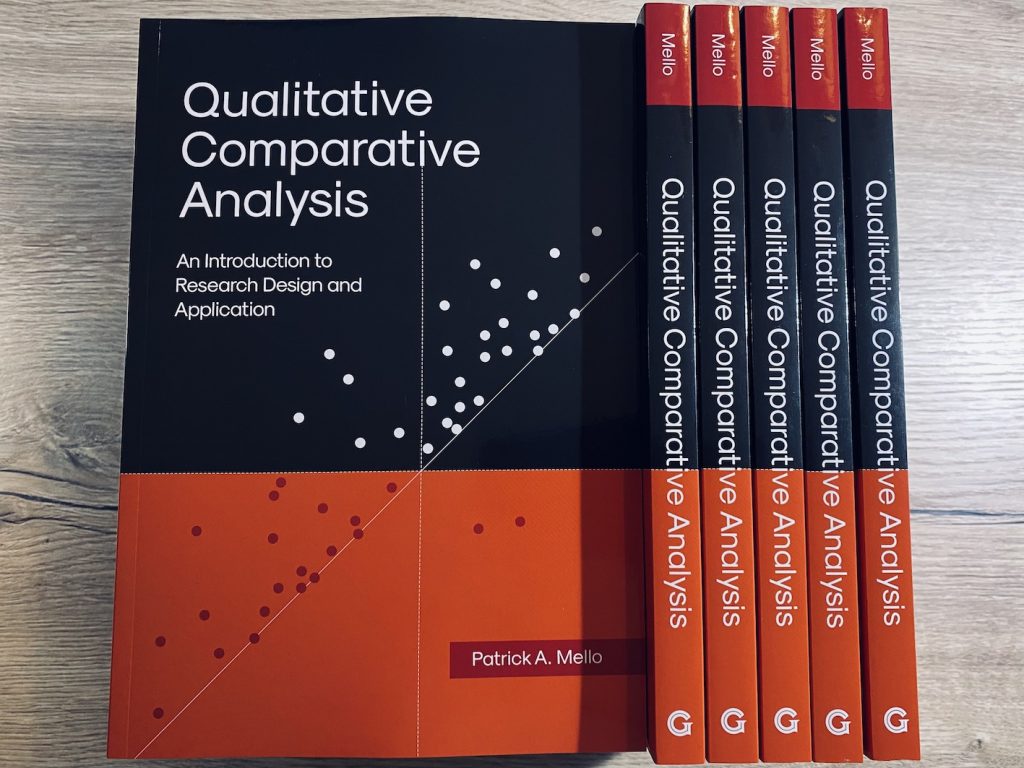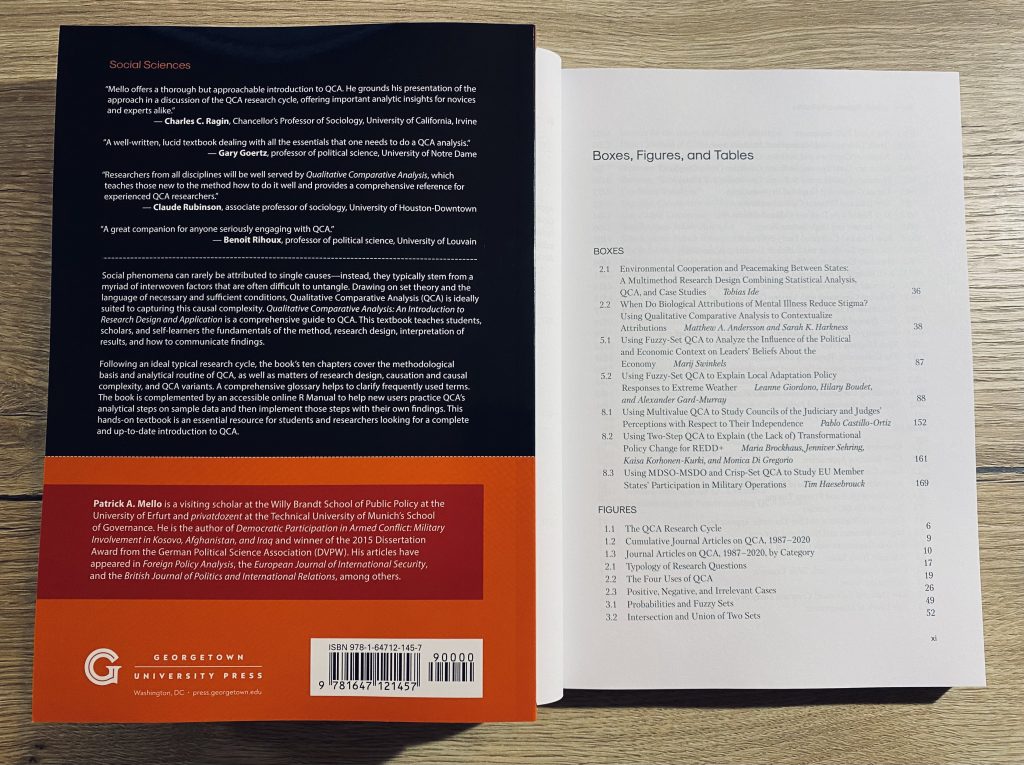Registration opened for the 26th Summer School in Social Science Methods, organized by the Swiss Foundation for Social Science Research (FORS) and the Università della Svizzera Italiana (USI). The school takes place at USI in beautiful Lugano, Switzerland.
For the 4th time, I am offering a one-week course on Qualitative Comparative Analysis (QCA) at the Swiss Summer School. The course takes place in presence during the week of August 22-26, 2022. The intensive full-day format in a small group settings allows for plenty of opportunities to practice empirical application with the R software, to discuss research design, and give feedback on participants’ research projects.
The course is based on my recent QCA textbook Qualitative Comparative Analysis: An Introduction to Research Design and Application (Georgetown University Press, 2021).
